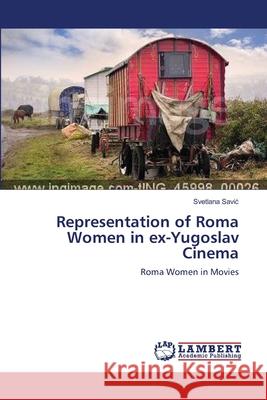Representation of Roma Women in ex-Yugoslav Cinema » książka
Representation of Roma Women in ex-Yugoslav Cinema
ISBN-13: 9783659533655 / Angielski / Miękka / 2015 / 96 str.
Roma people are the minority most frequently portrayed in ex-Yugoslavian films. The dominant ideology of most of the European countries has kept and still keeps Roma people, through ever-present list of negative stereotypes and discrimination, at the lowest level of society. Tendencies of the world cinematography up to the end of the last century were to portray Gypsy women as an exotic element in romantic imaginary settings, avoiding social and political issues like poverty, marginalization and discrimination. In the generalized representations of Roma women in the movies, lies a myth that is based and built on the identity of Roma people, which according to social standards, movie trends and the need of a certain films for a positive or a negative interpretation of the Other, always create repetitive models that are eventually received as universal features. The object of this thesis is to draw attention to the mechanisms of representation of Roma women in ex-Yugoslavian movie director, Aleksandar Petrovi 's film I Even Met Happy Gypsies, within the framework of an analysis based mainly upon Laura Mulvey's theory of the male gaze, as well as various other feminist film theorists"
Roma people are the minority most frequently portrayed in ex-Yugoslavian films. The dominant ideology of most of the European countries has kept and still keeps Roma people, through ever-present list of negative stereotypes and discrimination, at the lowest level of society. Tendencies of the world cinematography up to the end of the last century were to portray Gypsy women as an exotic element in romantic imaginary settings, avoiding social and political issues like poverty, marginalization and discrimination. In the generalized representations of Roma women in the movies, lies a myth that is based and built on the identity of Roma people, which according to social standards, movie trends and the need of a certain films for a positive or a negative interpretation of the Other, always create repetitive models that are eventually received as universal features. The object of this thesis is to draw attention to the mechanisms of representation of Roma women in ex-Yugoslavian movie director, Aleksandar Petrovićs film I Even Met Happy Gypsies, within the framework of an analysis based mainly upon Laura Mulveys theory of the male gaze, as well as various other feminist film theorists











